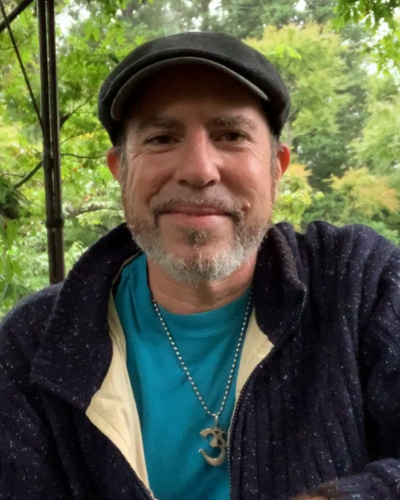Once upon a time, my guru and I were having our tea in the Tibetan Quarter of New Manali, speaking about this and that under an early-winter Himalayan sky, when he bluntly told me that I needed to “learn how to be alone in this life”.
More than a decade into our relationship, I knew he wasn’t referring to the practice of staying by myself in my mountain abode, or to the many pilgrimages that would take me here and there. Neither was he referring to my relationships with friends or family. Actually, I didn’t know what, in fact, he was referring to, as was often the case when he planted a seed, or dropped a bomb on my mind.
I write about this today because I have seen, or heard, several references by people close to me, to loneliness on the path of self-mastery, and they’ve bid a recollection. I considered that my friends’ expressions of their personal experiences were perhaps the tip of a very broad iceberg, of a broader segment of the global conversation, that may be experiencing this very same feeling. In this light, I wonder if a good parsing of the guru’s language might be called for, because what he said was, that I needed to learn how to be alone. Not that I necessarily need to feel lonely about it.
Guruji spoke eloquently, and meticulously, on most matters, but on some topics, like this one, he’d introduce a powerful one-liner, like a koan, and just let it simmer with me for the rest of my life. And it has.
I’ve considered the instruction often. It could be taken as an admonishment, seeing as how I’m just as effected by the hindrances to self-realization as the next guy. You know, those demons of on the battlefield of mind called anger, avarice, lust, greed, illusion and attachment—oh, there are lots of guys on the opposing team for sure! But, even viewed equally through a parallel lens, as an encouragement, to enjoy all the blessings of grace which the Lord pours down upon my innocent brow, this advice to learn how to be alone has brought with it a certain enabling discernment, an empowerment of equanimity, that is entirely forbidding of loneliness. Still, if truth be told, there is suffering, too.
The master often spoke about the strength required to suffer, a very great strength not easily developed by a mind beholden to the demons. After all, the power to suffer for humanity was once upon a time seen in a great man, and few others besides. Not too many people could do it quite like Him. Perhaps I shouldn’t have even brought Him up.
But if we’re not trying to model the masters, then what are we doing anyway? Guruji was a master empath; he could take on the pain and suffering of a person, manifest it physically in his own body to show a truth, let it go, and equally manipulate, modulate, temper and heal his human condition in kind. He could hold the ocean of poison in his own throat until the angels churned the nectar. He was austere, but not stoic. He was steel, but flowed like water. He showed me that sacrifice is the epitome of benevolence, and suffering the result of the most sublime joy. It’s true. One cannot suffer like a sage until that joy is realized.
When the master bull-dozed his hermitage—removing us from the idyllic village that I’d become reliant upon—moving us into an apartment in a neighboring township—he told me that it was because God was found in the middle of all the people, not upon an isolated hillock. That the One was in the many, and that neither Hindu, Buddhist, nor Christian had a monopoly. God could not to be rolled up into any one idea, he’d said, but would immediately confound us with another if we tried.
He took the mind of a philosopher and tamed it with reason, letting me discover for myself what it meant to live alone among many. For I was most certainly alone. A lone man, with a lone perspective, in a world of people looking at me like I’m nuts. A man for whom the snow answered with a promise and a voice, delivering sustenance for the apple orchards only because I’d entertained a compassionate thought that it might be. That even though the villagers had killed my favorite dog, out of their ignorance and fear—blasted the poor guy with a shotgun—on another level the rains still had to be; the valley needed the nourishment. Perhaps it was my feeling for the children; I don’t even remember anymore.
If you want to attain, then you have to kill the body feelings.
Readers who have enjoyed my Stone & Steel Masterclass might be familiar with this quote, and its prominence at the beginning of the program. It’s a powerful statement, and a teaching that might require a lifetime to fully appreciate, because left unappreciated, the seeker’s path to self-mastery will indeed be lonely. We will forever be called to stone facades in order to visit the temple, instead of being enabled to worship at the altars of our own hearts, and it will make no difference whether we are surrounded by crowds, drowned out in the anonymity of the city, or living ascetic lives in heavenly vales—as long as the mind is beholden, for all its temerity and boisterousness, all its self-righteousness and intellectual feigning to conceptual knowledge—it will always be the lonely child of lost innocence.
I am alone on my path; it absolutely must be so. But my mind is beholden to me alone, so there is that small solace. And loneliness, should it encroach, is met where it lives with swift and decisive indifference. What else can I do? I am a man. I am yogi. This is Real Yoga.

…is a Saiva Tantrika, Gyana Yogi and founder of Uma Maheshwara Yoga & Ayurveda. David has an MA in Semiotics, lives in Japan with his family and works as a coach in L & D, devoting his time to developing science-based tools and programs that help people reach the fullest potential of the human condition.
Discover more from REAL YOGA
Subscribe to get the latest posts sent to your email.


